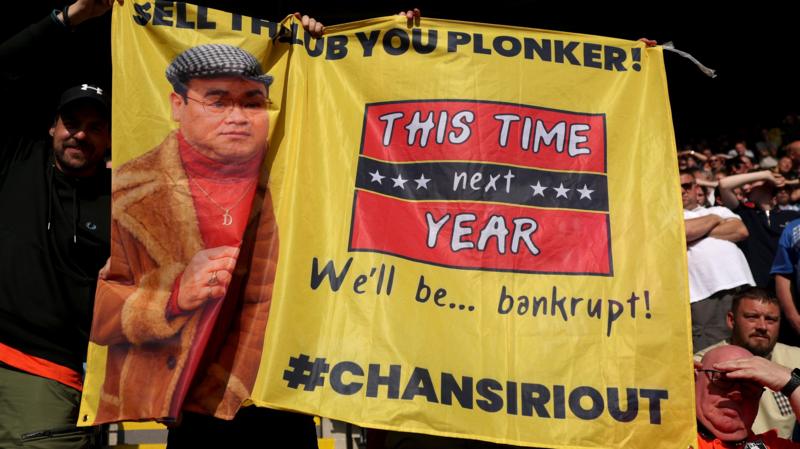Sheff Wed Fans Rally in Unison for Owner to Sell Club Now!




In an extraordinary display of fan activism, Sheffield Wednesday supporters made their voices heard in a very public manner during a recent away game at Leicester City's King Power Stadium. As the Owls battled it out on the pitch, their fans took to the skies—quite literally—with a banner-toting plane that circled the stadium, broadcasting a clear message aimed squarely at the club's owner, Dejphon Chansiri.
The flying banner, stark against the blue sky, was hard to ignore. It read, “Time to go Chansiri,” signaling a boiling point in the relationship between the ownership and the club's passionate fan base. This isn’t the first instance of football fans protesting against club management, but the method was certainly one of the more dramatic scenes witnessed in recent times in English football.
To understand the full context, one must consider the journey Sheffield Wednesday has been on under Chansiri’s ownership. The Thai businessman took over the club in 2015 with high hopes and promises of investment with the goal to return the Owls to the Premier League. Initially, his tenure showed promise as the club reached the Championship playoffs in the 2015-2016 and 2016-2017 seasons. However, the Owls fell short on both occasions, and what followed were seasons mired in financial troubles and underperformance.
The situation escalated when Sheffield Wednesday received a 12-point deduction at the start of the 2020-2021 season for breaching the EFL's profitability and sustainability rules. Though this penalty was later halved, the damage was done, and the club was relegated to League One at the end of the season.
Against this backdrop, the plane's message symbolizes a growing frustration among supporters. Many feel that Chansiri’s lofty ambitions were not matched by prudent financial management and strategic foresight. Problems such as delays in player wage payments have further strained relations between the fan base and the owner.
The fallout has been a rallying cry for change and a deep yearning to reclaim the glory days of top-flight football. It's a sentiment echoed in many parts of the football world, where tradition and community identity are often at odds with modern football's commercial pressures and ownership styles that can feel distant to fans.
While the method of protest at the King Power Stadium was unusual, it’s not isolated. Football globally has seen a rise in fan activism, from Manchester United supporters protesting the Glazer family ownership to FC Barcelona’s socios voting in club elections to address their concerns. These movements underscore a broader trend where fans are no longer passive spectators but active participants demanding a say in their clubs' futures.
The event at Leicester also shines a spotlight on the broader cultural impact of football as more than just a game. It is a community binder and a source of local pride. Sheffield Wednesday’s case study is a poignant reminder of the emotional investment fans have in their clubs—an investment that often surpasses financial stakes and becomes a lifelong commitment.
While the future is uncertain for Sheffield Wednesday and Dejphon Chansiri's relationship with its fan base, what remains clear is the unwavering support and love the fans have for their club. This latest act of aerial activism may just be a tipping point in a larger narrative about football governance, fan engagement, and the soul of football clubs.
As this drama unfolds, the football community will watch keenly, understanding that the implications stretch far beyond the terraces of Sheffield Wednesday and into the heart of football culture itself. This isn’t just about a banner in the sky; it’s about the hearts on the ground and their desires for a club that reflects their passion and respects their voices.